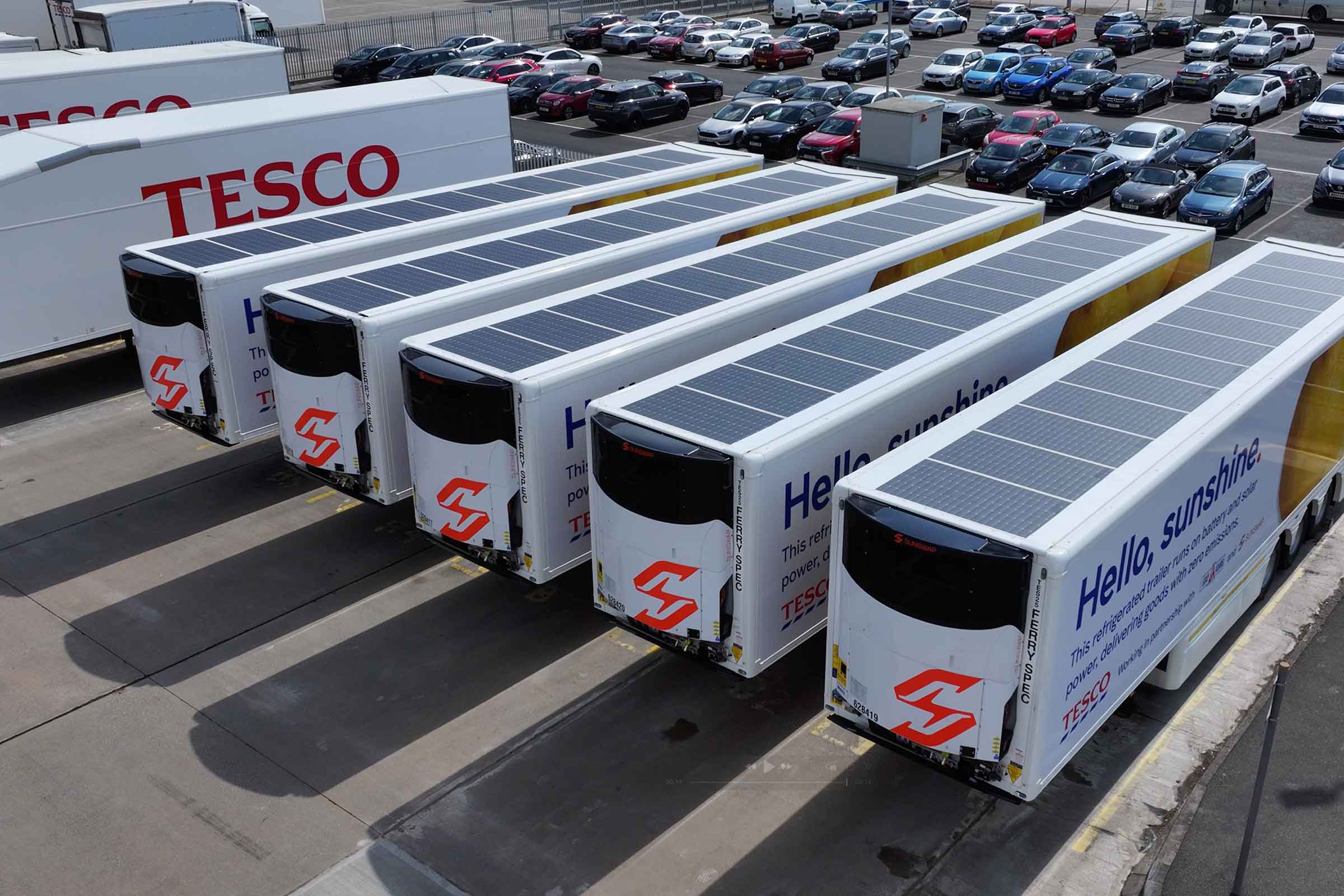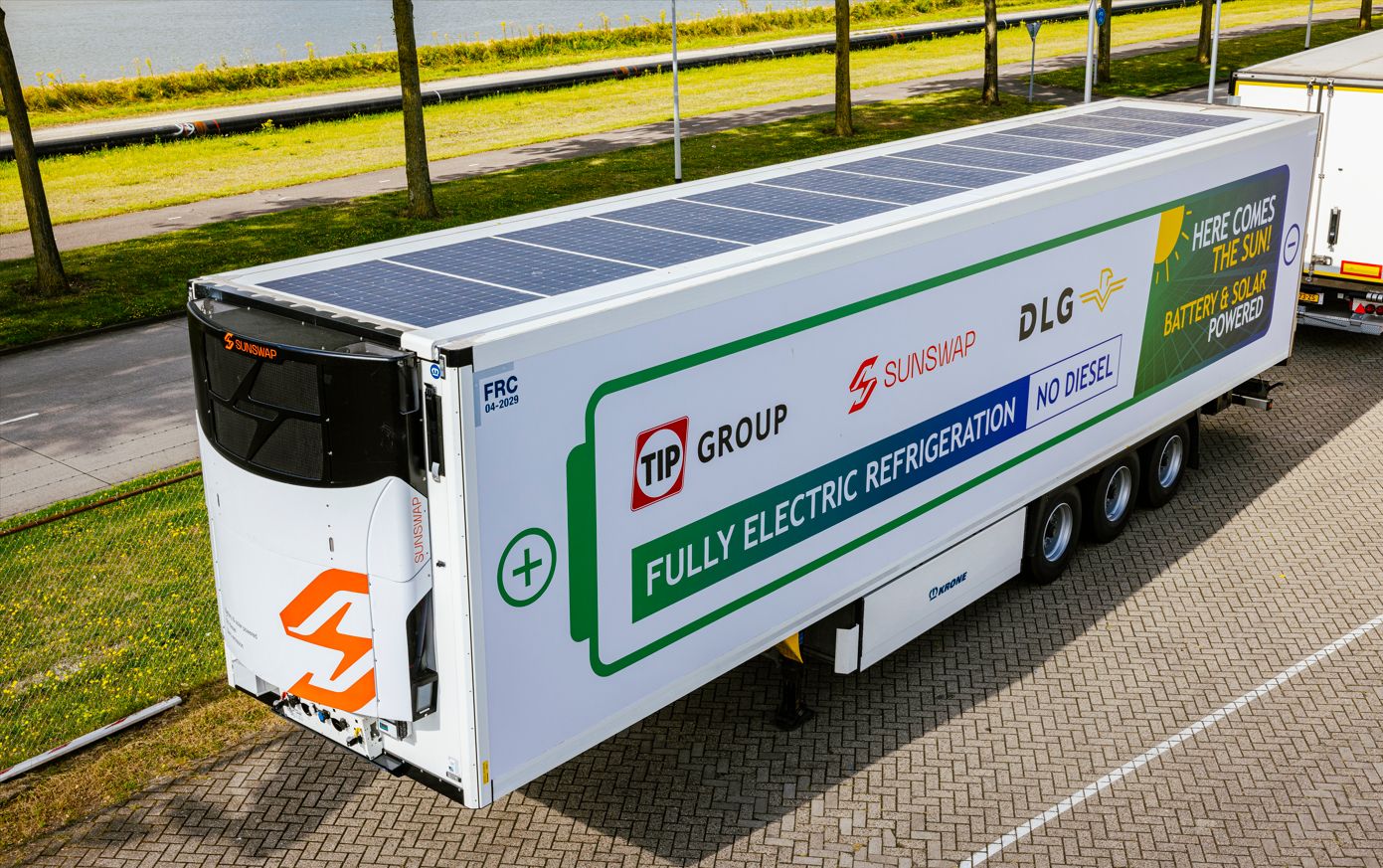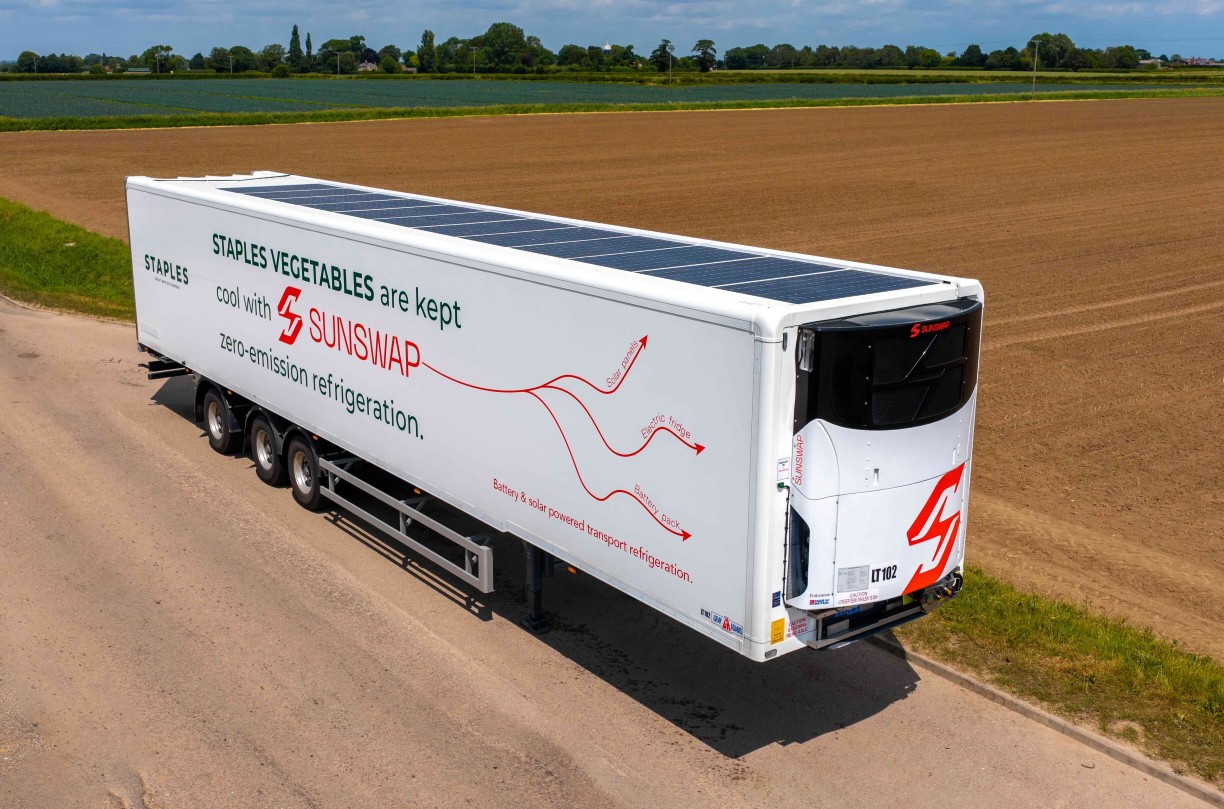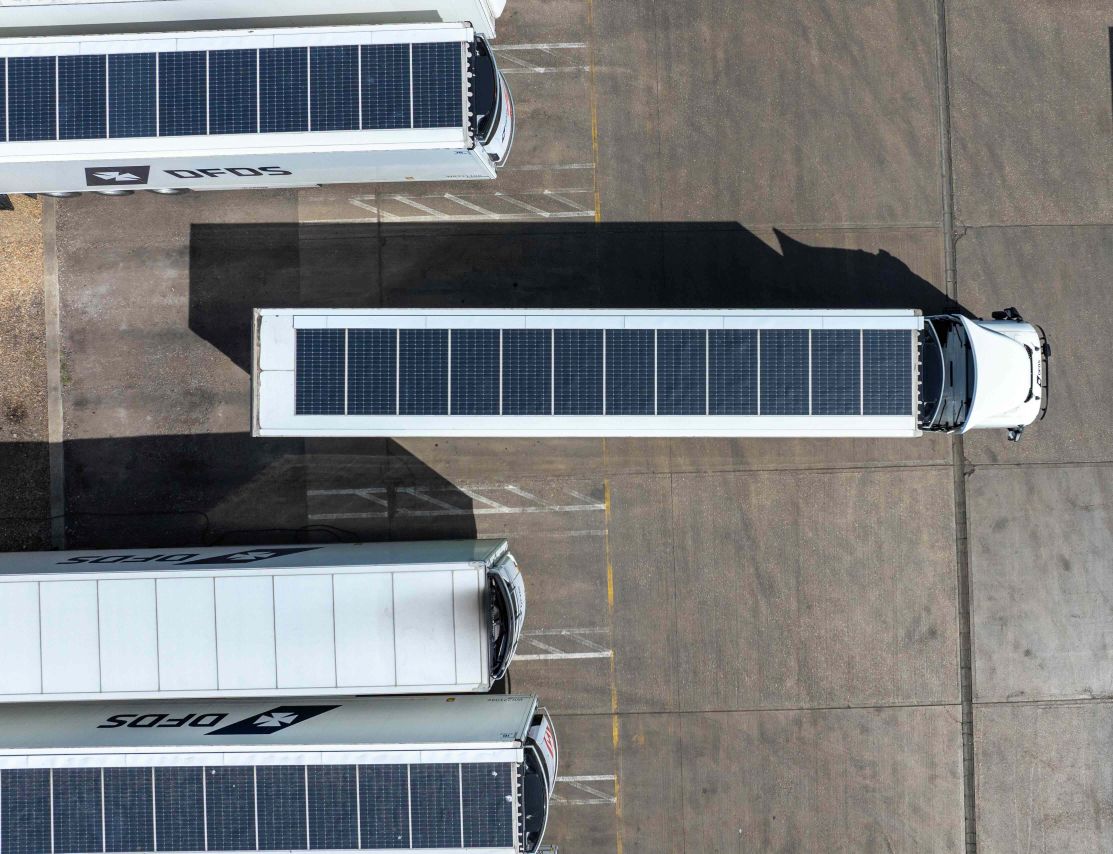Will the Batteries Last? What Fleet Operators Need to Know
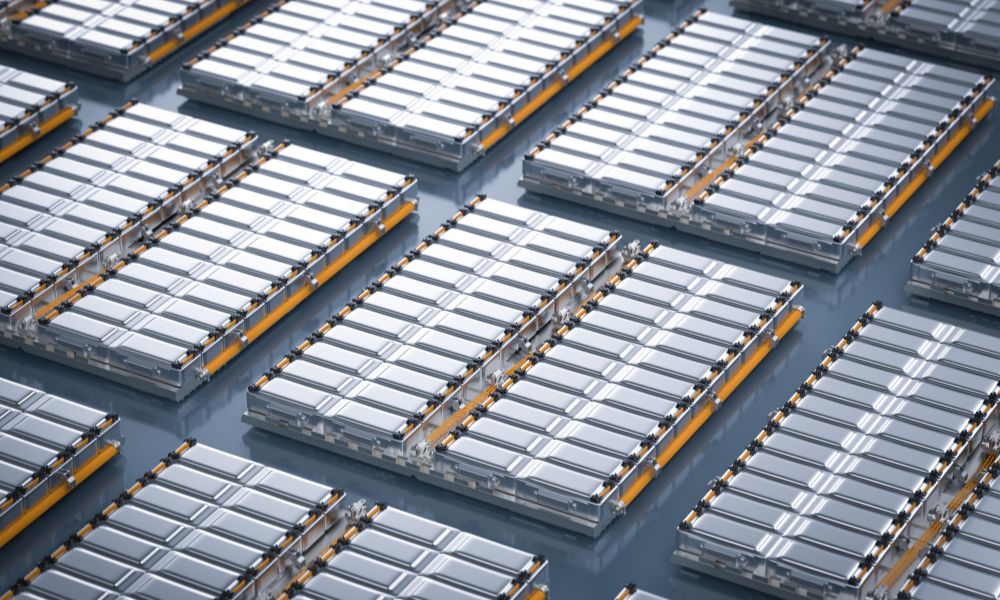
For transport and fleet managers considering zero-emission refrigeration, battery longevity is a natural concern. You want confidence that your investment will deliver reliable performance throughout its operational life.
We’ve all had our 2-year-old phone die unexpectedly from low battery. But your phone battery that barely makes it to lunchtime after a year is nothing like the batteries used in commercial vehicles and fridges. Phone batteries are tiny, get very hot, and fully drain every day. Batteries in transport refrigeration are industrial-strength, carefully temperature-controlled, and rarely fully discharged. They're built specifically for long-term commercial use.
The Bottom Line on Battery Life
Let's address the key question most operators ask upfront. Yes, modern batteries will last. In fact, they'll likely outlast your refrigeration unit itself.
Recent studies show that electric vehicle batteries typically lose only 1-2% capacity annually. At this rate, after a decade of operation, your battery would still retain 80-90% of its original capacity which is far beyond what's needed for effective operation.
This has been proven already today in electric vehicles. On average, BEVs now have a lifespan of 18.4 years similar to that of a petrol engine and surpassing the lifespan of a diesel engine.
For busy fleet managers, sustainability directors, and company owners, here's what matters
- No mid-life replacement costs: Today's batteries are designed to last well beyond the useful life of many commercial applications
- Solar advantage: Sunswap's integrated solar panels reduce battery stress and extend useful life
- Comprehensive protection: Backed by warranties that reflect confidence in long-term performance
- Battery afterlife: With refrigeration units often only in fleet for up to a decade this means your batteries will have a life beyond the unit itself – providing resale value or future energy storage.
However, not all batteries are built the same.
When evaluating different EV tech, here are some questions you should be asking to ensure you get the best battery technology.
- How is battery temperature managed? Look for systems with active thermal management that maintains optimal operating temperature in all conditions—both cooling and heating. This ensures year-round operation and extended battery life.
- What battery chemistry is used? LFP (Lithium Iron Phosphate) provides approximately 3x more charge cycles than NMC batteries commonly used in passenger EVs and can be safely charged to 100% without degradation.
- What is the battery discharge rate? Lower discharge rates dramatically extend battery life. For context, Sunswap Endurance has a discharge rate 12x gentler than a Tesla ensuring a longer life.
- Is the system designed specifically for refrigeration? Purpose-built systems integrate battery and refrigeration controls rather than retrofitting separate components.
- How many full charge cycles can the battery endure? Quality systems should handle at least 3,000 full charge cycles. Endurance is built with this in mind to ensure it can withstand x3 the predicted real-world usage.
- How are the batteries powered? Solar integration, like with Endurance, significantly reduces the number of grid charging cycles required – saving time, cost and extending range.
- Is the system low or high voltage? Lower voltage systems (48V) can offer improved safety and simplified maintenance requirements.
These factors significantly impact long-term battery health and should be key considerations in your purchasing decision.
Now let's look at why battery technology has become so much more reliable and what this means for your operations.
Why Modern Batteries Exceed Expectations
Stanford University researchers recently discovered something surprising: batteries last up to 40% longer in real-world use than laboratory tests predict. Why? The stop-and-go nature of actual operations is gentler on batteries than the continuous discharge cycles used in testing.
For refrigerated transport, this is particularly relevant. The variable cooling demands throughout a delivery cycle, with periods of lower power usage during stops and door openings, create a more battery-friendly environment than constant operation.
Geotab's analysis of thousands of electric vehicles confirms this, showing average degradation rates of just 1.8% annually. Plus these are continuing to improve each year as technology advances.
For sustainability managers and technical stakeholders looking for more detailed information on battery technology, we've included additional technical insights below.
The Cost of Waiting
Many fleet operators wonder if they should wait for "the next big breakthrough" in battery technology before investing in electric refrigeration. The data suggests this waiting approach could be costly for several reasons:
- Battery technology is already mature
Geotab's analysis shows that battery health has improved by 22% between 2019 and 2024, with degradation rates falling from 2.3% to 1.8% during this period. The technology has reached a point of reliability that makes waiting unnecessary.
- Operating cost gap is widening
As diesel faces potential future regulatory pressure, electric refrigeration’s operating cost advantage grows. Each year of delay means missing out on operational savings of up to 81% compared to diesel alternatives.
- Contract requirements shifting
Many major retailers are now requiring sustainability commitments in their logistics contracts. Having zero-emission capabilities can be the difference between winning and losing business opportunities.
- First-mover advantage is significant
Early adopters gain valuable operational experience and develop internal expertise ahead of competitors. They establish efficient workflows, train staff effectively, and build the necessary infrastructure while laggards still face steep learning curves. Customers like DFDS and Bannister Transport are already building this competitive edge.
Battery longevity should no longer be a barrier to adoption for transport operators ready to transition to zero-emission refrigeration. Sunswap's technology provides a reliable, long-lasting solution that delivers operational savings and environmental benefits without compromise.
For a look at how Sunswap Endurance can benefit your specific fleet operations, contact our team today.
News and Updates
Stay up to date with the latest developments from Sunswap.


.webp)

